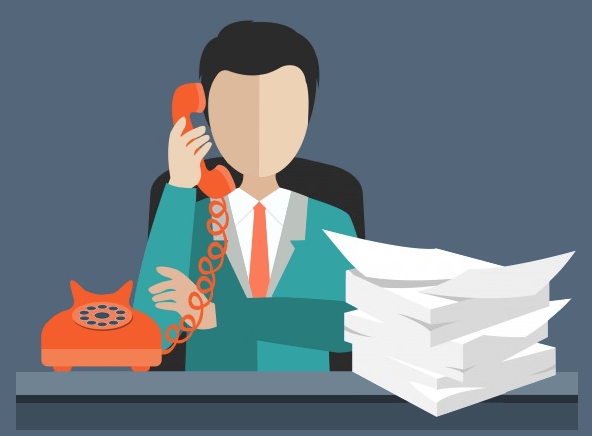Telephonic conversations are fast replacing traditional “on-venue” meetings, due to the logistics and time saved. It is much easier for people to have a conversation over the phone nowadays, as compared to travelling to a distant place to do the same.
Although the obvious advantages of a telephonic conversation are many − one being that the person does not have to be physically present during the time of the interview, this could also be one of its distinct disadvantages.

In a face-to-face conversation, 70% of the person’s responses are non-verbal and are related to body language. In a telephonic conversation, you have to make up for that 70% with your voice projection, tone and modulation.
Some Important Points on Telephonic Etiquette −
● Speak loud enough to be heard clearly. Keep your mouth close to the mouthpiece. It is advisable to use a hands-free equipment, if possible, so that your hands are free to jot down points. Many people express their points by the use of their hands to emphasize on specific areas of discussion. Using hands-free equipment will also enhance your expressive skills.
● Let the other person do most of the talking, as he will be explaining what he wants to inform you about, for you to understand. Also speaking out of turn could irritate the listener.
● Smile and speak in a conversational manner. Smiling while talking changes the shape of your mouth when you pronounce the words and the listener easily picks up this change in tone.
● Place a notepad, pen, and a copy of the document that is being discussed near you for reference and jotting down important information.
● Try to go to a place that has as less background noise and interference as possible while attending a telephonic interview.
● If you are stuck in a traffic or a noisy place when someone from office calls and asks if it’s the right time to talk to you, excuse yourself politely and offer to call back in 5-10 minutes. This will give you time to go to a silent place to prepare your mood and mind for the conversation.
● Turn off Call-waiting and such applications that give beeping notifications during calls, so that the other person’s attention is not diverted due to the distracting sound.



Comments are closed